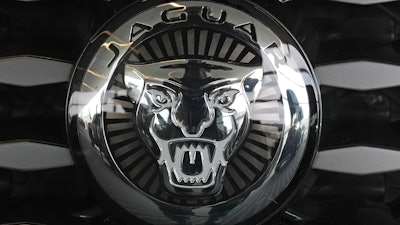
DETROIT (AP) — Jaguar is telling owners of about 3,000 electric SUVs to park them outdoors and away from structures due to the risk of battery fires.
The British automaker is recalling I-Pace SUVs from the 2019 model year, but has not yet developed a final remedy.
As an interim fix, dealers will update the battery energy control computer to limit battery charging to 80% of capacity. The company has issued three previous recalls for the same problem, and all of the SUVs will need the new remedy. The previous recalls updated diagnostic software.
The automaker says in documents posted Thursday by U.S. safety regulators that there have been three fires in the U.S. after previous software updates on the vehicles. No injuries were reported.
"Owners who have previously had their vehicle updated with the improved diagnostic software are under the impression that their vehicle is protected from thermal overload which, for 2019 MY (model year) vehicles, may not be the case," the documents say.
Documents say that the I-Pace batteries were made in Poland by LG Energy Solution, whose products are under investigation by the U.S. National Highway Traffic Safety Administration.
The agency opened the probe in April of 2022 after five automakers issued recalls due to possible EV and hybrid battery defects that could cause fires or stalling.
General Motors, Mercedes-Benz, Hyundai, Stellantis and Volkswagen have issued recalls since February of 2020, most due to internal battery failures that can increase the risk of fires.
In November of 2020, General Motors began a string of recalls that involved more than 140,000 Chevrolet Bolt EVs from the 2017 through 2022 model years due to the "simultaneous presence of two rare manufacturing defects in the same battery cell." The defect caused at least 10 fires.
Messages were left Thursday seeking comment from Jaguar and LG Energy Solution.






















